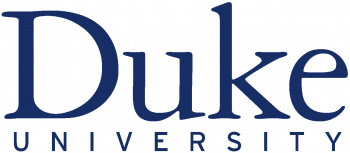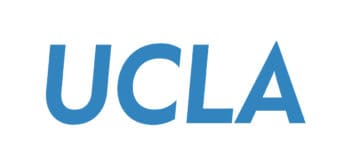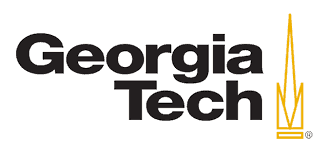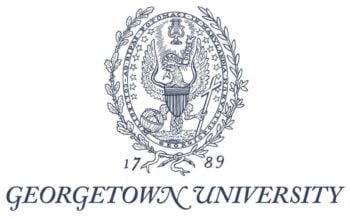Pre-college summer programs are college-level classes developed for motivated high school students interested in getting a head start on their future college careers. Pre-college summer programs offer a broad variety of benefits and a chance for students to learn the lay of the college landscape. Students attending summer programs get to meet new people and form lifelong friendships while experiencing college campus life and earning college credits.
High school students who choose to attend a pre-college program are given the opportunity to learn what to expect regarding college-level coursework. In other words, they are better prepared for college life and even have a way to make their application to college stand out from the rest.
In addition, a pre-college program is a great way to help a student refine their choice of majors. By attending a pre-college campus program, high school students get a taste of what their potential career choice may require in terms of education. This is incredibly valuable, especially if a student can make the decision before committing to an academic major or losing valuable credits (time and money) if a student decides to switch.
Pre-college programs are an innovative way for students to explore academic interests on a deeper level while getting a feel for campus life. Pre-college programs can be highly worthwhile and enjoyable experiences if given a chance.
Finding the Best Pre-College Summer Programs
Pre-college summer programs for high school students have exploded in recent years. There are programs at elite liberal arts colleges, massive public research universities, small regional institutions, and powerhouses like NYU and Johns Hopkins. For our ranking, College Consensus featured only residential programs, considering factors such as:
- College Credit
- Mentorship
- Residential Experience
- Scholarship Opportunities
With programs selected for their benefits, we then ordered the list according to the Consensus Score of the institution. Prospective students can trust that these programs have all the experience they could hope for, and establish their connections to colleges and universities that have proven themselves to experts and students alike.

Duke University offers one of the leading pre-college summer programs available in North Carolina and beyond. Duke’s summer programs for graduating high school students are provided in five two-week residential sessions, although there are commuter options for participating schools and their students. Duke University also offers two hybrid sessions, with the two weeks divided, with one in residence and the other online. The cost for these programs varies but are available for $3,200 to $3,400, contingent upon the selection of the program.
Duke University is a private research post-secondary school that was established in the 1830s by Quakers and Methodists. The school’s name honors the electric power magnate James Buchanan Duke who established the endowment, now valued in excess of 12 billion dollars. The school’s student enrollment exceeded 16,700 students. Duke is ranked among the most elite universities across the globe by many publications.

Cornell University’s School of Continuing Education (Cornell CSE) offers a residential pre-college summer program that offers high school students (current sophomores, juniors, and seniors) the opportunity to have a taste of college academics (and campus life) before they begin their freshman year. For approximately $4,800.00, students can choose from more than 50 Cornell University undergraduate classes that run either three or six weeks. These earned credits offered by Cornell are applicable, at the discretion of the relevant school, as college credits.
Cornell University operates as a private, statutory land-grant institution of higher education that was founded in the mid-1860s. In addition, the school is a sea, space, and sun grant university that is organized into 14 colleges and schools. More than 25,500 students attend classes in Ithaca, NYC, Qatar, and online. Cornell University is among the few Ivy League higher learning institutions in the country.

The UCLA offers a pre-college summer program through the school’s Precollege Summer Institutes. UCLA’s summer sessions offer college students classes from one to three weeks as a residential or non-residential student. Depending on the student’s selections, the program fee ranges from $2,000 to $5,000 across eleven fields of study. UCLA offers merit and needs-based scholarship opportunities for those high school students in California eligible for the program.
The LA campus of UC is a member of the ten-campus UC system that was founded in 1919. UCLA is a space-grant institution of higher education with a student enrollment that exceeds 45,500 students each. Year. Athletes from UCLA have represented the USA in the Olympics since the university was established, except 1924 – having a gold medalist in every representation except 1932.

The University of California, Berkeley offers one of the west coast’s best pre-college summer programs. Berkeley’s summer session is a residential program that allows students to experience campus life while earning college credits and participating in extracurricular excursions and activities. Residence halls are chaperoned and are available with a daily meal plan. The cost for this fantastic summer at UC Berkeley is approximately $15,100. Students have the option of attending college prep workshops to complete their college environment experience.
The University of California, Berkeley is recognized among the globe’s leading institutions of higher education that was founded in the 1860s – the oldest of the UC member schools. UC Berkeley is a space-grant and statutory land-grant school that is organized into fourteen colleges and schools, with more than 45,000 students each year. The school hosts a variety of research institutes, including Math/Science and Space Sciences. Berkeley works in partnership with national labs in California and New Mexico.

Brown University offers high school students the opportunity to explore the opportunities and challenges by attending an on-campus program in Providence. Students select from classes that run for one to six weeks. The cost to participate in Brown’s leading pre-college program depends on many factors and ranges between $3,200 and $13,850. Students have the opportunity to experience an Ivy League setting while taking classes alongside students from around the world. Note that Brown University offers app fee waivers and scholarships for this program.
Brown University is a research school that was founded in 1764, making it among the seven oldest higher education institutes in the nation. Brown is considered Ivy League and a space-grant that serves more than 10,000 students on its urban campus or online. Brown is among the most selective of schools having an acceptance rate for first-year students of about 5%.

The University of Pennsylvania offers a residential pre-college program that helps them ready themselves for the college experience as well as selecting from a number of on-campus classes. The University of Pennsylvania’s pre-college residential program offers high school students the opportunity to earn academic credit from UPenn that can be applied towards future college requirements. Penn’s pre-college program runs between $13,246 to $21,114, depending on the number of credits a student decides to take over the summer.
The University of Pennsylvania is a private institution of higher education that was founded by Ben Franklin in the 1750s, making it one of the nation’s colonial colleges – defined as chartered prior to the American Revolution. The school serves more than 22,200 undergraduate and graduate students each year. The University of Pennsylvania’s alumni read like a who’s-who of politicians, scientists, and scholars.

The University of California, Davis offers that offers high school students (aged 14 to 18) a variety of residential college-level courses that provide students the opportunity to experience a taste of college before graduating from high school. Fees and expenses for UC Davis’s pre-college program range between approximately $6,000 to $6,600, depending on the student’s field of study, which includes environmental toxicology, theater, equine science, pre-med, coastal and marine sciences, and innovation & entrepreneurship.
The University of California, Davis is a public land grant school that is also considered a Public Ivy institution of higher education. UC Davis is home to more than 31,100 students each year. The veterinary school at UC Davis is ranked as the top in the field and the largest school for vets. The University of California Davis is the most northern of the ten campuses of the University of California system.

Georgia Tech’s College of Design (GT) offers a pre-college program in design that runs two weeks each summer – offered in two sessions – June and July. This residential program from Georgia Tech for high school students offers programs for high schoolers (rising junior or senior students) in building construction, architecture, music technology, or industrial design. The cost to attend Georgia Tech’s pre-college design program for each two-week workshop is $2,300. These programs focus on the symbiosis that exists among design, technology, and construction, among others.
Georgia Tech (formerly known as the Georgia Institute of Technology) is a public institution of higher learning that was established in the mid-1880s s part of the effort to rebuild the south after the Civil War. Georgia Tech, a member school of the state university system, serves more than 35,600 students each year. The school is organized into six schools and colleges that offer programs and degrees in science and technology.

Johns Hopkins University offers a pre-college program for high school students that is among the leading summer residential programs in the nation. Johns Hopkins provides three sessions (for each of the two-week programs) for high school students in the areas of STEM, Preparing for College, Foundations of Medicine and Health, Humanities, Social Sciences, Psychology & Brain Sciences, and Film & Media. Each course offered by Johns Hopkins University has a tuition expense of $5,500.
Johns Hopkins University is a research higher learning institution that was founded in the 1870s. JHU operates campuses in Maryland and the nation’s capital, plus international locations in China and Italy. More than 27,100 students attend classes online and on one of JHU’s campuses each year. Johns Hopkins University is ranked among the top ten schools in the US and across the globe.

Georgetown University offers a pre-college program on its campus in Washington, DC. This immersive experience for high schoolers lasts from one to eight weeks and includes a wide variety of subjects from which to choose. Options include creative writing, biotechnology, economic policy, social justice & public policy, nursing, or leaders in advocacy, to name a few. The cost of Georgetown University’s pre-summer program is approximately $6,700.
Georgetown University operates as a private school. It was founded in the 1780s by a Roman Catholic bishop. The school remains affiliated with the Jesuit Christian church and is organized into ten graduate and undergraduate schools/colleges. Georgetown is home to 18,500 students (from more than 125 countries) who attend classes online and on the Washington DC campus. The Georgetown men’s basketball team holds a record eight Big East basketball championship titles.

The University of Texas at Austin offers a residential pre-college program that offers high school two three-week sessions each summer. Coursework high schoolers have the option to choose from includes programming, fashion, digital marketing, and sports management, to name a few. Tuition costs for commuters runs about $3900, and the residential three-week residential program costs approximately $6,999. Students attending UT’s pre-college program have the opportunity to experience the Lone Star State’s fantastic entertainment and attractions.
The Austin campus within the University of Texas system was founded in the early 1880s as a public institution of higher learning. The state’s flagship university is also a space-grant school that serves more than 50,000 undergraduate and graduate students each year. UT Austin is home to seven libraries and 17 libraries.

Purdue University’s Summer College for High School Students offers students (that are 15+) more than 600 courses from its pre-college summer programs. These classes from Purdue University are available in 1, 4, 8, and 12-week options to ensure it fits the student’s schedule. The cost for the program for Indiana residents is $347.85 per credit, with a set rate of 6-7 credits at $2,498, plus room and board while on campus for an additional $1,469.
Purdue University is a land-grant school in West Lafayette that was founded in the late 1860s by John Purdue. In addition, Purdue University is also a sea-grant and space-grant institution of higher learning with a student enrollment that nears 50,000. More than two dozen alumni of Purdue are astronauts, and six are CEOs of Fortune 500 companies.

Emory University’s Summer College offers a residential pre-college program on its Atlanta campus designed for rising juniors and seniors. Students can select from 2 two-week non-credit courses or 2 six-week college credit courses. The cost for the full college credit programs is $8,966, which includes the student’s meal plan and housing expenses. Attending students can choose from a wide variety of subjects that include philosophy, computer science, economics, physics, theater, psychology, and dance, to name a few.
Emory University, established in the mid-1830s is a private research university located in Atlanta. The school has an ongoing religious affiliation with the Methodist Church and serves more than 15,000 undergraduate and graduate students each year. Emory is recognized to be the second oldest of all higher learning institutions in the state, with Mercer U founded only a few years before Emory University.
Carnegie Mellon University offers several options for high school students who wish to attend a pre-college program on Carnegie Mellon’s Pittsburgh campus. CMU’s pre-college programs are offered in three, four, and six-week sessions. The cost of the programs depends on the subject and the length of the program but ranges from $9,000 to $11,630. Available subjects for CMU’s pre-college program include music, art, architecture, computer science, design, drama, and writing, to name a few.
Carnegie Mellon University is a research school that was founded as the Carnegie Technical Schools in 1900. CMU maintains three campuses – Pittsburgh, Silicon Valley, and Qatar. The student enrollment at Carnegie Mellon University exceeds 15,500 undergraduate and graduate students each year. CMU is organized into seven colleges/schools, with its main campus located about five miles from the city’s downtown district.

Virginia Tech’s College of Engineering offers a pre-college program on its Blacksburg campus in computers and technology (known as C-Tech2) for motivated high school students. This Virginia Tech program for high schoolers is designed for rising junior or senior girls. VT offers one two-week session each summer, with an approximate cost of $2,000. Students engage in exciting applications to learn about engineering from a new perspective. Note that there are scholarships available to students on a needs-based basis.
Virginia Tech (VPI) is a public school that was founded in the early 1870s as an agricultural and mechanical college. In addition, VT is a senior military college and a land-grant or space-grant school with more than 36,100 students each year. In terms of enrollment, Virginia Tech is considered Virginia’s second-largest public institution of higher learning.

Wake Forest University Summer Immersion offers a hands-on pre-college experience for high school students who wish to dive into their college career fully prepared. This residential program offers nearly twenty program options, including business, engineering, public advocacy, film, finance, law, writing, psychology, law, medicine, leadership, sports medicine, health/exercise science, and neuroscience, to name a few. The cost to attend Wake Forest University’s Summer Immersion pre-college program is $2,500 – $2,700, depending on whether the coursework is Stem-related.
Wake Forest University is a liberal arts school that has been operating privately since 1834. Wake Forest University maintains several educational facilities across North Carolina as well as internationally in Switzerland and the Dominican Republic. The student enrollment at this senior military college exceeds 36,200 students each year. In a recent college ranking, Wake Forest University ranked first as the college students love.
North Carolina State University offers a variety of subjects to high school students through its pre-college program options on its Raleigh, NC campus. NC State’s pre-college program options range from several day workshops to longer programs, depending on the students’ interest and selected program. High school students attending North Carolina State University’s pre-college programs have a chance to develop their academic skills while building a portfolio and investigating career options.
Established in the 1880s, North Carolina State University is a land-grant institution of higher learning. NC State is also a member school of North Carolina’s university system. NC State is one of the three schools that create the Research Triangle in the state. More than 35,500 undergraduate and graduate students attend classes each year on campus and online. North Carolina State University also operates as a space-grant and sea-grant university.

Boston University Summer Term offers a resident pre-college program for high school students known as the Summer Challenge. This residential program runs two weeks and is offered in three sessions throughout June, July, and August. The overall cost (for tuition, housing meals, etc.) for Boston University’s Summer Challenge is $4,400. Students who wish to attend BU’s summer program must be at least 14 years old by the time the Summer Challenge begins.
Although founded originally by the United Methodist Church in nearby Vermont in 1839, Boston University (BU) now operates as a nonsectarian school, with a student enrollment that nears 35,000 undergraduate and graduate students. The school’s campus along the Charles River in Boston faces MIT on the opposite side of the river in Cambridge. The BU men’s hockey team has won a remarkable five national titles.

The University of Maryland offers the Terp Young Scholars Program, a residential pre-college program designed to offer high school students the opportunity to earn college credits while experiencing college life before graduating from high school. The University of Maryland’s residential pre-college program is available to students entering grades 9 -12. The all-inclusive cost of UMD’s pre-college program is $4,300 includes three college credits, activities, meals, lodging, and supervision.
The University of Maryland is a public school that was founded as an agricultural college in the mid-1850s. The University of Maryland is considered the flagship campus of the university system in the state. More than 40,800 undergraduate and graduate students attend classes on campus and online. The University of Maryland holds the distinction of being a public ivy school.

George Washington University offers a pre-college program for high school students who wish to spend their summer in the nation’s capital. This residential program from George Washington University offers a top-tier faculty in the areas of museum studies, the arts, global development, international relations, politics, biomedical engineering, history, and diplomacy, to name a few. The cost to attend this residential summer immersion program from GWU is $3,925, which includes room & board, program fees, and supplies.
George Washington University is a federally chartered institution of higher education that operates privately. GWU was founded as Columbian College in the 1820s. The school now serves more than 26,800 students each year. George Washington University ranks among the top ten schools in a number of ranking categories. George Washington University maintains three campuses in Mount Vernon, Foggy Bottom, and the state of Virginia.

The University of Rochester offers a pre-college residential program that offers current high school students an authentic college experience while studying from a number of subject areas. The University of Rochester offers both full-day programs (which run three weeks) and half-day programs (which run one or two weeks). The half-day options allow students to study more than one discipline. The cost to attend U of R’s pre-college program full-day program is $8,250, with the half-day programs broken costs broken down accordingly.
The University of Rochester (U of R) is a research institution of higher learning located in upstate New York. The campus of U of R covers more than 500 acres and serves approximately 12,200 students each year. The school is known for its Institute of Optics, developed by Bausch & Lomb and Eastman Kodak in the late 1920s.

Smith College offers summer pre-college programs open to young women entering grades 9 to 12. These programs are offered in science and engineering, college readiness, creative writing, women, gender and representation, and sustainable futures. Smith College’s pre-summer college program options are strictly residential as they feature hands-on learning and social offerings. The cost to attend Smith College’s summer pre-college programs ranges from $2,595 to $7,298, depending on the length and exact program selected.
Smith College was founded in the 1870s and is a member of the Seven Sister Colleges, an elite college consortium of seven women’s colleges located in the Northeastern portion of the United States. Smith is also a member of the Pioneer Valley Five School Consortium. The school serves about 2,900 students each year. Smith College was the first all-women’s college to become a member of the NCAA as a sports team.

The University of Massachusetts Amherst offers a variety of residential pre-college programs and research-intensive labs designed for high school students to attend during the summer. Academic programs for UMass’ summer immersion program include 3D design, 3D animation, entrepreneurship, construction technology, and equine science, among others. Intensive labs include cognition across development neuropsychology, and health and ecology, among others. The cost to attend UMass’ resident pre-college programs ranges from $1,763 to $11,294, contingent upon the program or lab selected.
The University of Massachusetts at Amherst (UMass-Amherst) is a public school that was established in the 1860s as an agricultural college. UM, Amherst is the state’s only land-grant institution of higher education and the flagship campus of the state’s university system. With more than 30,100 students, UMass Amherst is Massachusetts’s second-largest enrollment, beaten by Boston University.

New York University (NYU) offers motivated high school students interested in experiencing college life and education requirements during one of the summers before graduating high school. In addition to college-level classes that offer earned credits, students can participate in a series of workshops entitled College 101. This program from NYU is available on-campus in iconic Greenwich Village in lower Manhattan. The cost for students to attend this NYU pre-college program depends on the number of credits taken – at $3,074 per credit.
New York University is a private institution of higher learning that was established in 1831 by a state legislature charter. NYU’s main campus is in NYC, but the school maintains educational facilities globally – from London to Paris and Berlin, etc. NYU’s student enrollment exceeds 51,650 undergraduate and graduate students each year.

Spelman College Prep Institute offers two two-week pre-college programs from mid-June through Mid-July. This residential program from Spelman is available to female high school students (or those who identify as women) who will be entering the 10th or 11th grades after the program is completed. These college prep classes develop life skills, leadership abilities, and test prep strategies. The cost to attend Spelman College’s pre-college program ranges from $2,800 to $4,400, depending on the length of a student’s enrollment.
Spelman College, a space-grant women’s higher learning institution, was founded as a female Baptist seminary in the early 1880s. Spelman College is an HBCU, with more than 2,000 students studying online and on the school’s Atlanta campus. Spelman College holds the distinction of being the oldest of all HBCU liberal arts colleges for women.

The University of the South (formerly Sewanee) offers high school students a variety of pre-college program options on its beautiful rural campus in Sewanee. This residential pre-college program includes options in academic English, environmental, finance, young writers, a Chinese language camp, and a choral institute, to name a few. The cost of these pre-college programs ranges from $1,400 to $5,250, depending on the student’s area of interest.
Established in the 1850s by the Episcopal Church, The University of the South was founded in the 1850s by the Episcopal Church and is recognized to be the seminary of the Episcopal Church. The school’s rural campus covers more than 12,000 acres and is situated atop a plateau that overlooks the Tennessee Valley. Sewanee serves about 1,700 undergraduate and graduate students each year. The school holds the distinction of publishing the longest continuously running literary magazine – since 1892.

Arizona State University has a variety of pre-college programs for high school students available across its various campuses. The residential program options for a summer immersion at Arizona State University include business, science, arts/design, computer science, math, health and medical, engineering, and language arts, to name a few. The cost for attending one of ASU’s pre-college programs ranges from $300 to $2,500, depending on the length of the program and the study area.
Arizona State University is a public post-secondary school that was founded in the 1880s as a teacher’s training school. The school maintains a variety of campuses and educational facilities in Arizona and beyond. The total student enrollment for ASU exceeds 100,000 when including those studying online. ASU operates a think tank (the Luminosity Lab) that is maintained by students.

Loyola Marymount University offers high school students the opportunity to experience college during one of the summers prior to high school graduation. Loyola Marymount University offers two-week non-credit programs as well as four-week residential options on the school’s Los Angeles campus. Four-week options include college credits in the social impact of filmmaking and a better world through engineering. The cost to attend Loyola’s pre-college program ranges from $5,100 to $9,000, contingent on the selected program and length of attendance.
Loyola Marymount University operates as a private Jesuit school in Los Angeles and is the parent-school of Loyola’s Law School. The university’s urban campus serves nearly 10,000 undergraduate or graduate students each year. The school operates a large solar rooftop electric array that generates about 6% of the school’s electricity needs. Loyola Marymount University is consistently recognized to be among the top film schools in the nation.

Drexel University offers high school students the opportunity to attend one of its summer institutes in Philadelphia, PA. Drexel University’s pre-college programs include summer camps in arts/sciences, public health, medicine, biomedical engineering, hospitality, business, engineering, college access, design, arts & media, and computing. This pre-college program has a fee that ranges from a few hundred dollars to $1,800.
Drexel University was established in the late 1890s as an institute of art, science, and industry. Drexel now operates as a private, space-grant research institution of higher education. The university’s urban campuses and online platform serve more than 24,100 undergraduate and graduate students each year. The school is organized into eighteen colleges or schools, plus a robust online education platform. The cooperative education component of the school’s policies is a unique aspect of Drexel University’s curriculum.

Adelphi University offers a summer pre-college program on the school’s Long Island campus that has been developed for high school students to earn college credits and get a taste of campus life prior to graduating from high school. Adelphi’s summer programs are ranked among the top 30 in the nation by College Consensus. Program options for these pre-college programs include business, art/digital production, nursing introduction, pop culture and psychology, teaching, medicine, health & science, and social work & society. The cost for Adelphi University’s pre-college programs runs approximately 3,600.
Adelphi University is a private post-secondary school that was founded in 1896. Adelphi maintains various campuses across NY in Manhattan, Suffolk County, and Hudson Valley. The school’s student enrollment nears 8,000 undergraduate and graduate students each year. Adelphi began as a college in the Fort Greene Section of nearby Brooklyn.
Can I Afford a Pre College Summer Program?
There are numerous benefits for students participating in pre-college summer programs including expanding their knowledge, engaging in hands-on experiences, building friendships, and getting a first-hand experience of college life. However, students and parents may be wondering if they can find an affordable pre-college summer program. When performing initial research, they’ll find that each program will vary in price. Under most circumstances, there are scholarship opportunities available for low-income students.
These pre-college scholarships help keep the doors of opportunity open for all students to participate in pre-college summer programs. Applying for scholarships for summer programs for high school students is similar to doing so for college scholarships whereby students must follow the instructions for application deadlines and meet the criteria. These scholarships are awarded based on income and financial need. Parents and students can find scholarships for summer programs for high school students on college websites as well as by asking their guidance counselors about how to apply for pre-college scholarships.
What Kind of Pre-College Summer Programs are There?
Students have a wide variety of opportunities to explore when deciding to participate in pre-college summer programs. There’s everything from art to drama to STEM and everything in between depending on the student’s interests and goals. For example, it’s possible to find free summer engineering programs for high school students through colleges and their high school guidance department if that’s their interest. It’s also possible to find graphic design summer programs for high school students, as well as art pre-college summer programs for those who are interested. Students who have an interest in pursuing a STEM summer program or finding the best computer science summer programs for high school students will also have no problem.
For example, students who wish to attend a STEM summer program will have opportunities to take courses in Astronomy, Biology, Biomedical Engineering, Chemistry, Medical engineering, and Physics. Those who are looking for free summer engineering programs for high school students will find much more than computer engineering courses. They’ll have opportunities to dive into software development and much more. Students who are interested in either art pre-college summer programs or graphic design summer programs for high school students will have opportunities to enhance their skills, develop an understanding of their career options, and obtain first-hand college life experiences. When individuals are looking for the best computer science summer programs for high school students, they’ll find courses that will help them further develop their skills, get a jump on their degree work, and help them understand what to expect during their college journey. Some of these pre-college summer programs are for-credit while others are designed specifically for the college experience.
Pre-college programs are generally intended for students in 10th grade, 11th grade, and 12th grade, although some are also open to 9th graders and even middle schoolers.
Do I Have to Live On-Campus for a Pre College Summer Program?
While it isn’t a requirement for students to live on campus, there are many benefits to doing so. The majority of pre-college summer programs include residency. The benefits of residential summer programs for high school students include that they’ll gain a sense of college life while making new friends and practicing independence. These residential summer programs for high school students provide opportunities to college students to immerse themselves into college life without it being as intense as their freshman year. Individuals can participate in residential summer programs for high school students in a way that’s much better than simply touring the college. The amount of time students reside on-campus for the pre-college summer program is dependent upon the college they select, as well as the program in which they’re participating. For example, some programs last one week and others last up to six.
Related:
A Guide To Taking A Gap Year
Ultimate Guide to Transferring from Community College to a 4-Year College
When are Application Deadlines for Colleges
